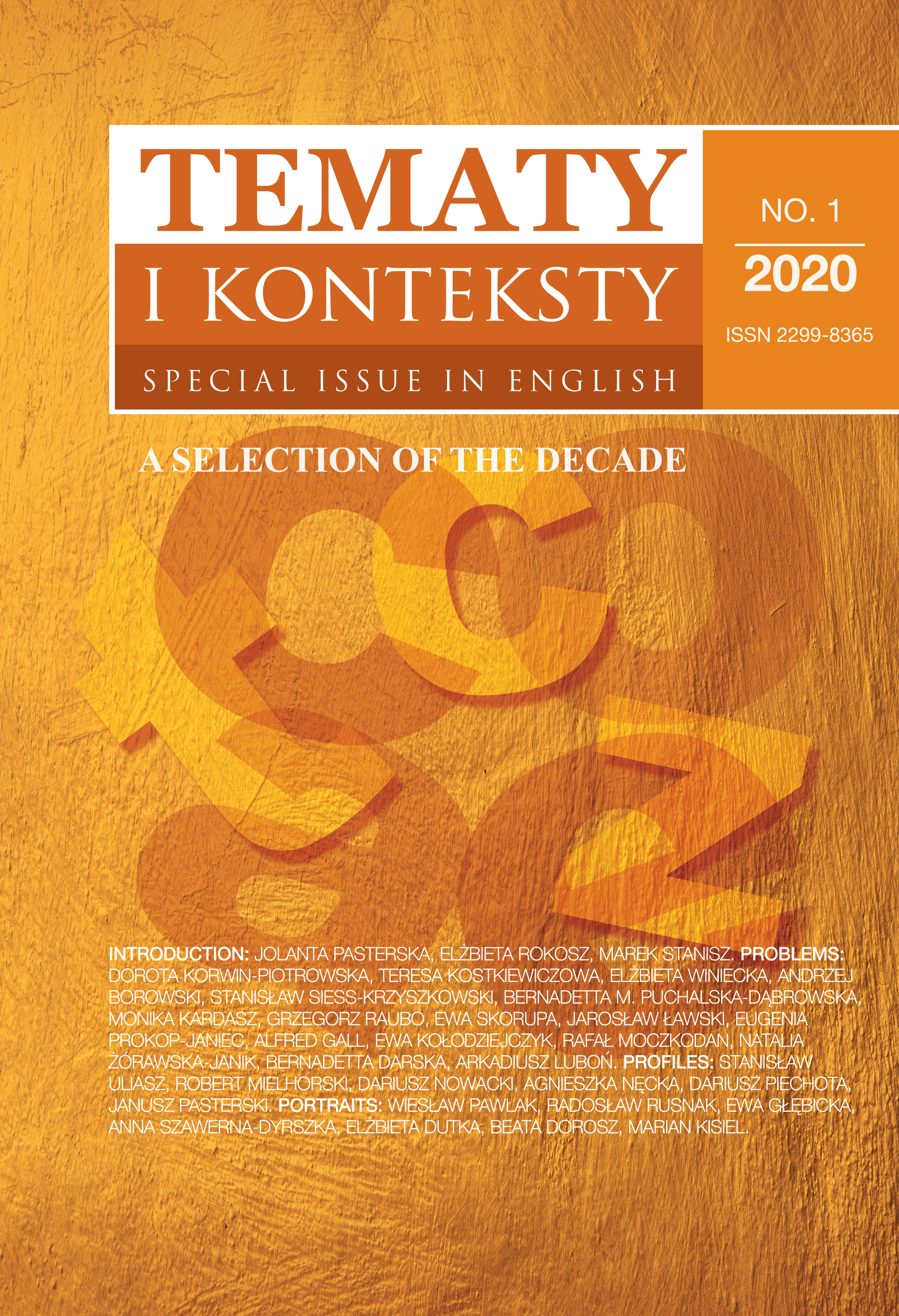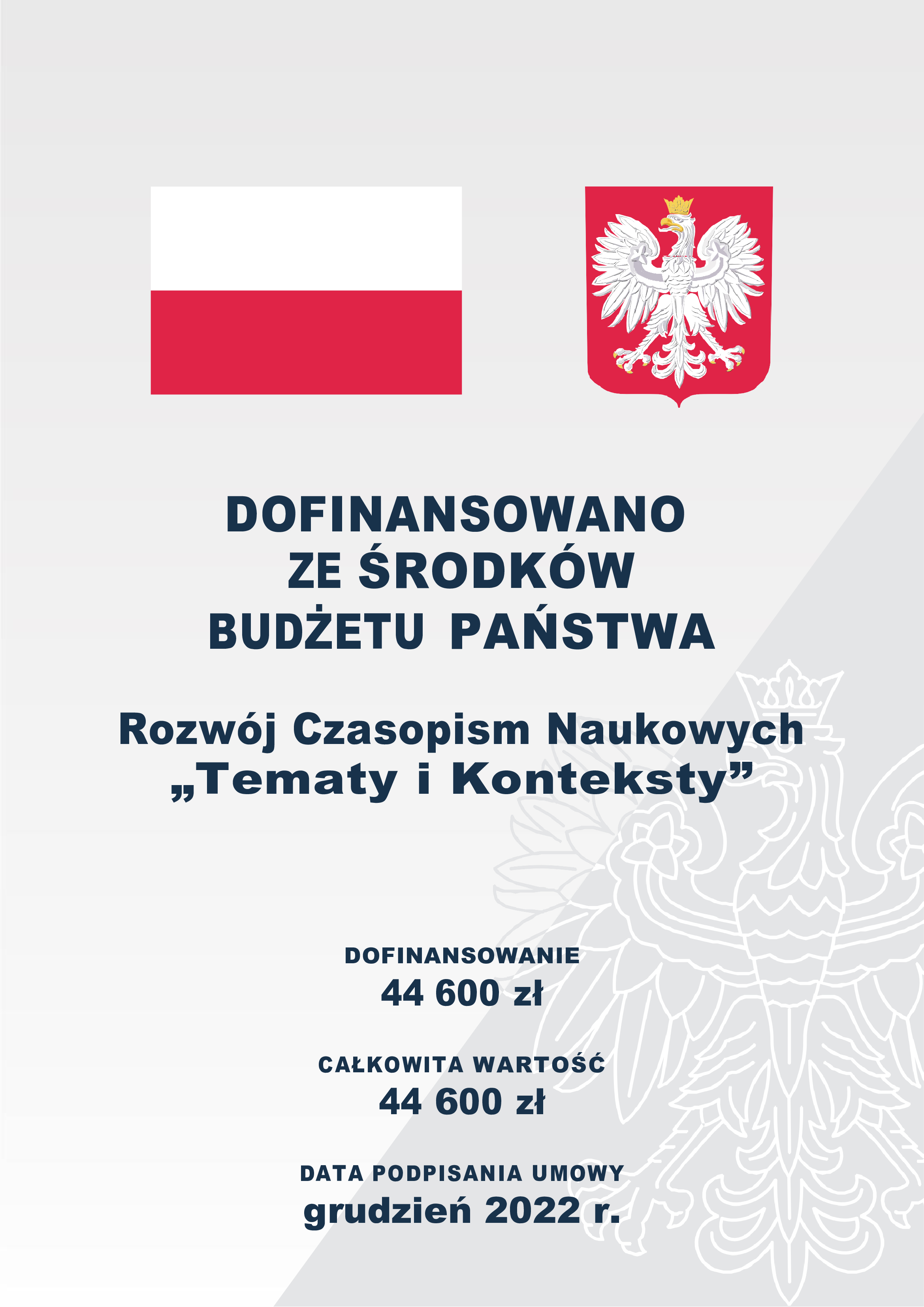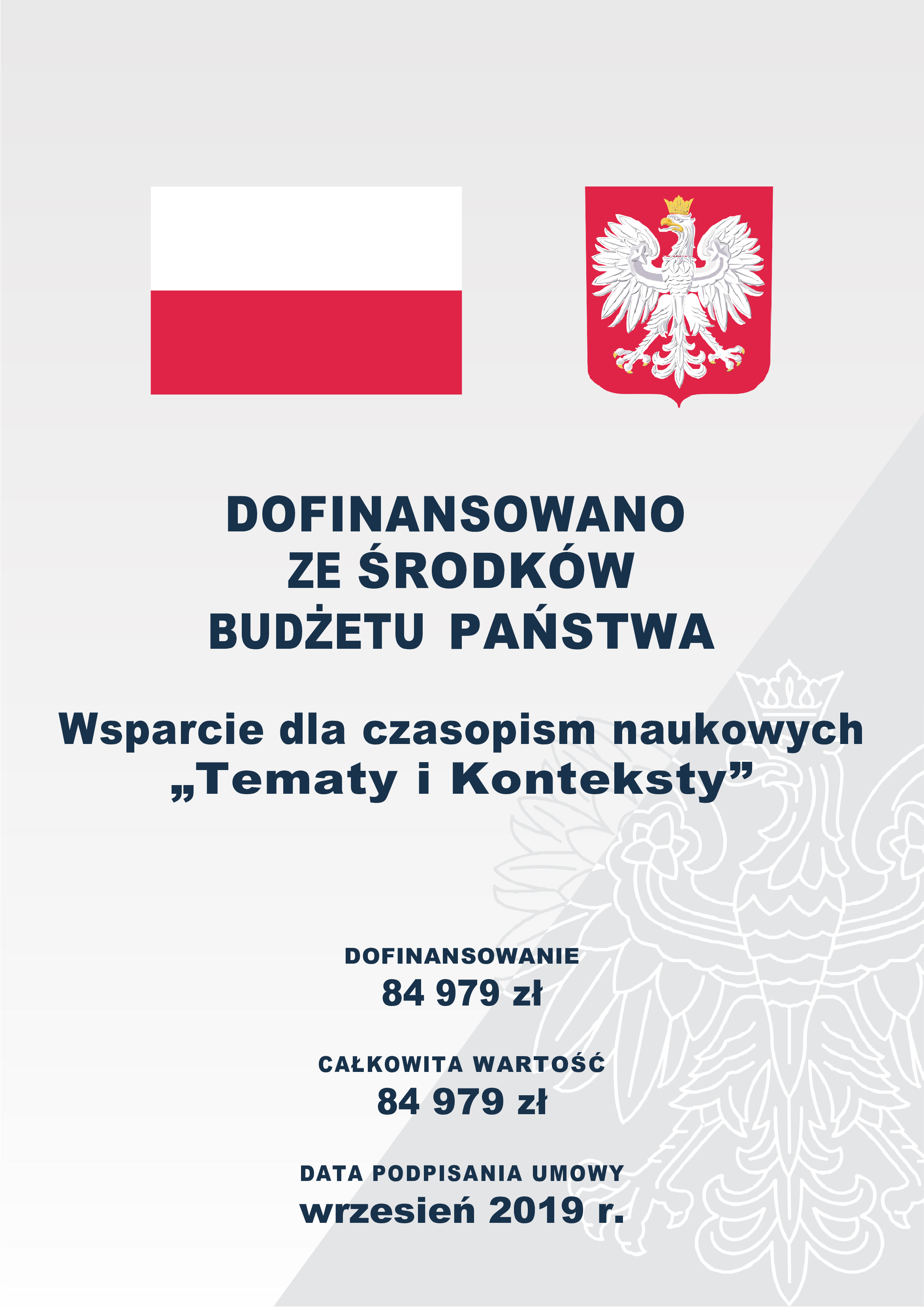Pius Vates
DOI:
https://doi.org/10.15584/tik.spec.eng.2020.4Keywords:
pious poetry, liturgical function of the text, religious literary themes, poet as a prophetAbstract
The question dealt with in the paper is as follows: to what extent might the notion of “religious literature” be functional if applied both to the early modern
literature and the contemporary literary culture? Does it mean “sacred literature,” simply opposed to the “secular” one, whatever it might mean? The author’s suggestion is to use the notion of “religious literature” more consistently, depending strictly on the liturgical functions of the text (e.g. of prayers, hymns or homilies), while the term “sacred literature” should be used only with reference to the so-called “Sacred Books,” i.e. the Revelation recognized in a given religious system. The sense of the terms “pious literature” or “pious poet,” however, should be much broader, going beyond the limitations of religious functions of the text and reflecting a quasi-prophetic intellectual and moral status of the writer.
Downloads
References
Bielski M., Rozmowa nowych proroków, dwu baranów o jednej głowie, starych obywatelów krakowskich, o przemienność niniejszego wieku naprzeciw staremu w porządkach, w obyczajach i w sprawach ludzkich, Kraków 1566/1567. Quoted after: https://archive.org/stream/satyrysenmajowy00bielgoog/satyrysenmajowy00bielgoog_djvu.txt. (accessed: 17.04.2014).
Boryś W., Słownik etymologiczny języka polskiego, Kraków: Wydawnictwo Literackie, 2005.
Dawson C., Religa i kultura [Religion and Culture], translated into Polish by J.W. Zielińska, Warszawa: Wydawnictwo Pax, 1958.
Eliot T.S., “Poeci metafizyczni,” translated into Polish by M. Żurowski, in: idem, Kto to jest klasyk i inne eseje, Kraków: Wydawnictwo Znak, 1998.
Eliot T.S., Wergiliusz i świat chrześcijański [Virgil and the Christian World], transl. Into Polish by H. Pręczkowska, in: idem, Szkice literackie, edited, selected, prefaced and annotated by W. Chwalewik, Warszawa: Wydawnictwo Pax, 1963.
Leksykon duchowości katolickiej, edited by M. Chmielewski, Lublin–Kraków: Wydawnictwo M, 2002.
Metaphysical Lyrics & Poems of the 17 th Century. Donne to Butler. Selected and Edited with an Essay by Sir Herbert J.C. Grierson, Oxford: The Clarendon Press, 1921. Quoted after: http://thresholdsbu.wordpress.com/issues/1-2/metaphysical-poets-rede-canonized/ (accessed: 14.04.2014 r.).
Segel Harold B., Renaissance Culture in Poland. The Rise of Humanism 1470-1543, Ithaca, London: Cornell University Press, 1989.
Uczta Cypriana, translated and edited by J. Kroczak, Wrocław: Wydawnictwo Atut, 2007.
Downloads
Published
How to Cite
Issue
Section
License
Copyright (c) 2021 Tematy i Konteksty

This work is licensed under a Creative Commons Attribution-NonCommercial-NoDerivatives 4.0 International License.




